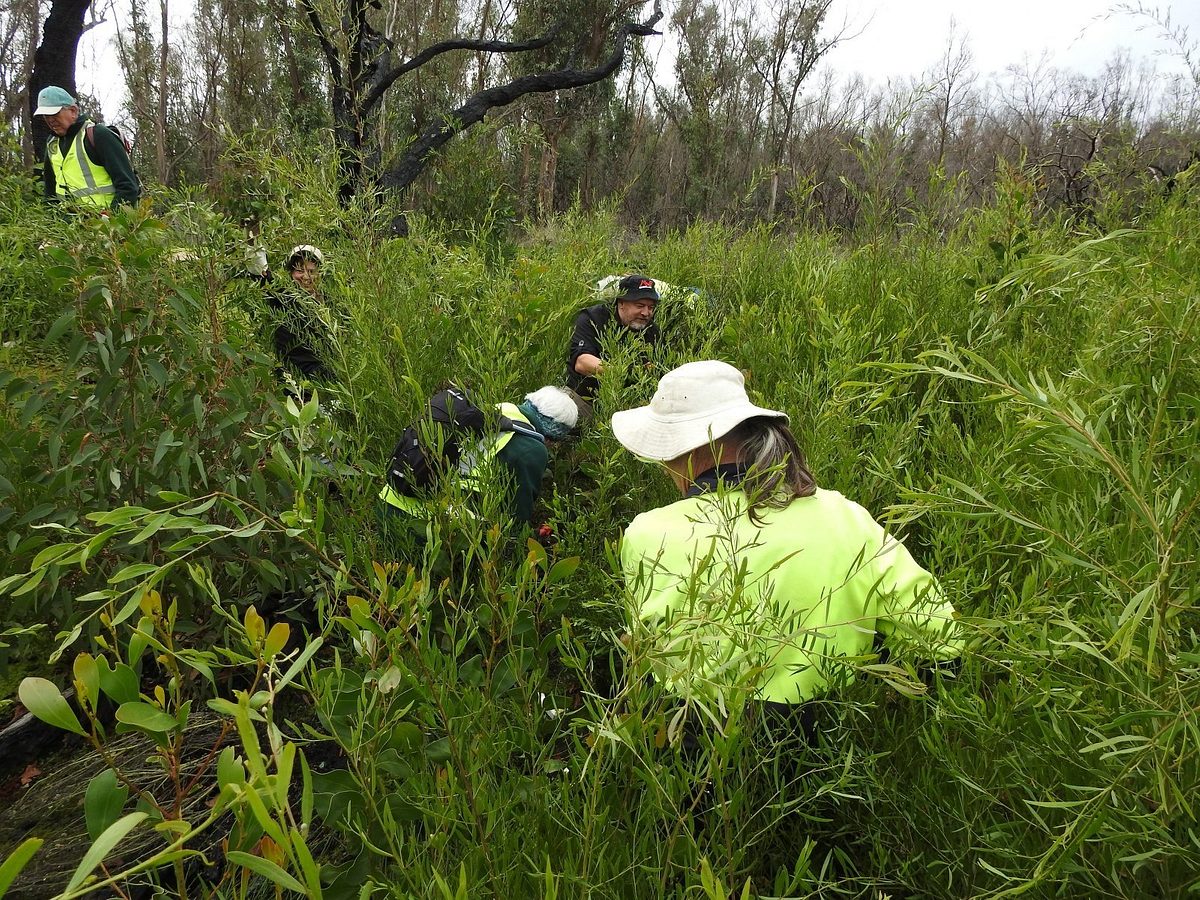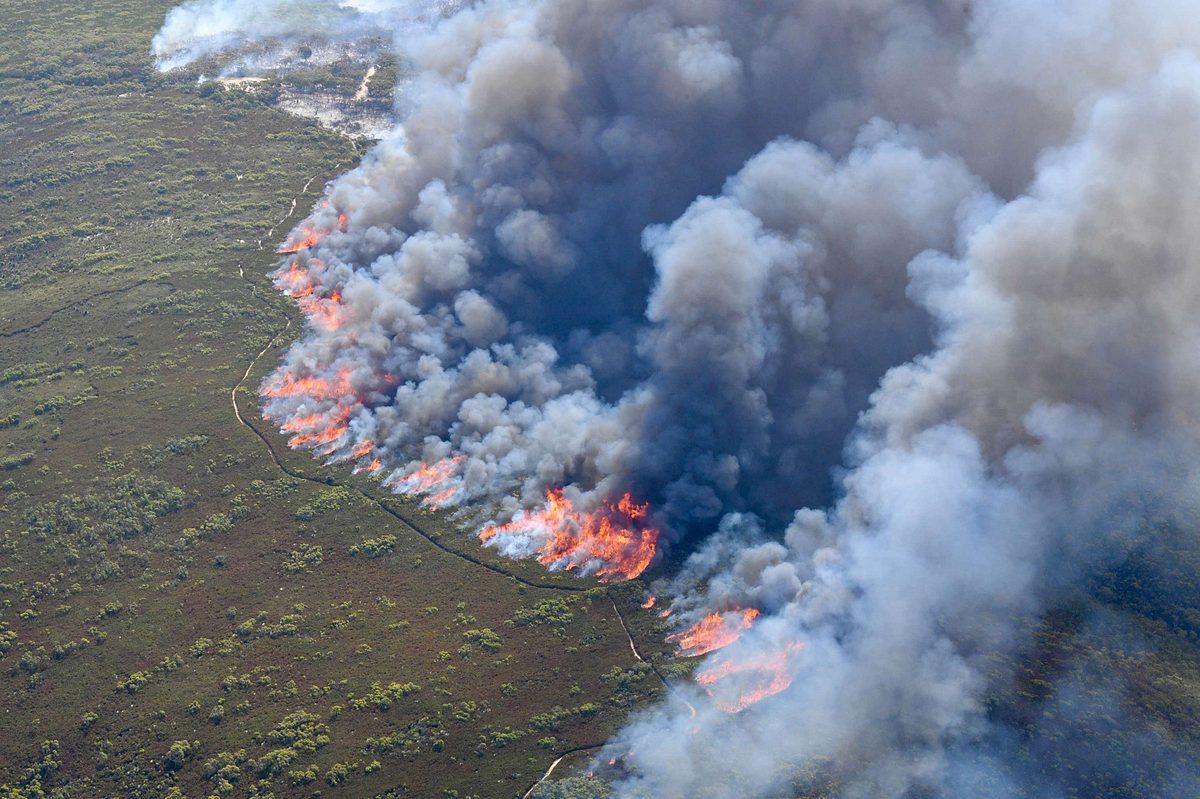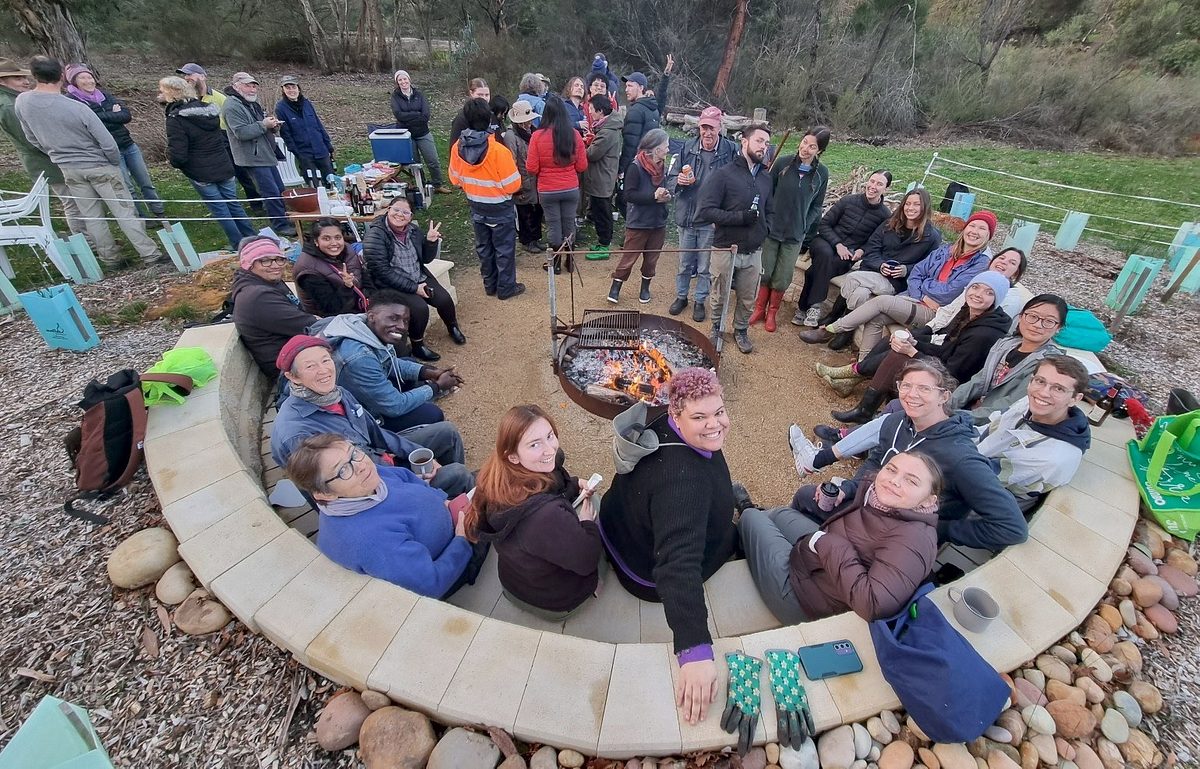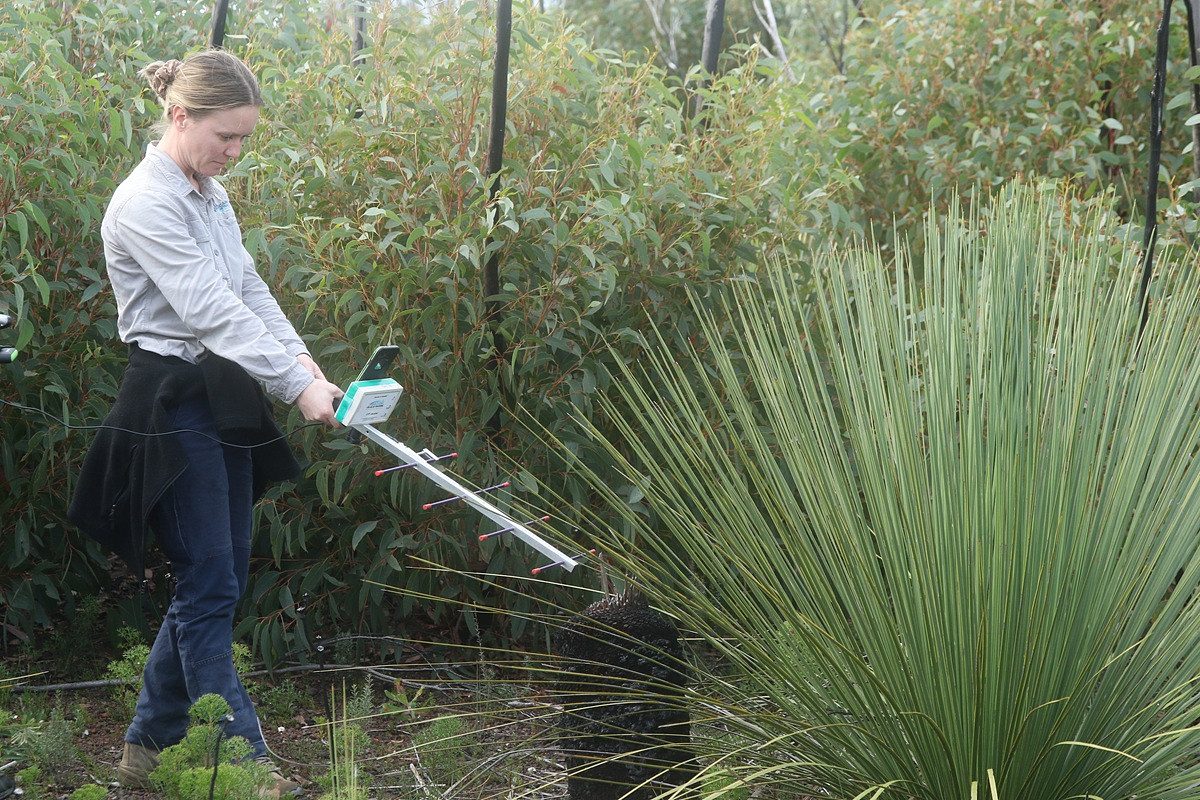A shout out to volunteers caring for landscapes
It’s National Volunteer Week (15-21 May) with this year’s theme focusing on volunteers being ‘The Change Makers’. We certainly see the positive changes that environmental volunteers make across our state and are grateful for community members who put up their hand to make a difference.
Here’s a run-down on what they do, why they do it, and how you can do it too.

Let’s start with a definition: 'Volunteering is time willingly given for the common good and without financial gain' (Volunteering Australia website, 11 May 2022)
While there may be no financial gains, evidence shows there are plenty of other benefits.
Volunteering Australia reports that people who volunteer are happier, healthier and even have better sleep.
There’s also stacks of research that shows that being out in nature brings its own benefits, which suggests that those volunteering while being outside in a natural setting are on track to reap even more rewards.
It’s hard to pinpoint exactly how many South Australians are volunteering for the environment, but the SA Nature Alliance – a collaboration between 12 nature conservation organisations – say they collectively engage more than 270,000 South Australians to deliver projects that restore our landscapes, create more sustainable agriculture, support nature-based volunteering, raise awareness about nature, deliver carbon offsets, and protect threatened species.


Why volunteer for the environment?
Green Adelaide – SA’s metropolitan landscape board – offers 5 good reasons to volunteer for the environment. You can:
- learn new skills and get to know the plants and animals in your local area
- meet like-minded people from diverse backgrounds
- share your passion and knowledge about the environment
- spend time in some of South Australia’s most beautiful and special places
- improve your health and wellbeing through connecting with nature.
How to find the right volunteering opportunity
When we think of environmental volunteers we often think of working in natural environments, but the opportunities are much broader than that. Volunteers also work with land managers to improve productive landscapes, for example, helping with fencing, weed and erosion control, surveys and threatened species conservation.
The opportunities are broad and varied. Maybe you’d like to experience new landscapes by volunteering outside of your local region?
Here’s some ideas to get you started:
- Explore the websites of local groups that do environmental work. You could start with the National Landcare Directory, Trees for Life, Conservation Australia and Volunteering SA.
- If you’re in metro Adelaide, contact a local volunteer group by using the interactive map on the Green Adelaide site or by downloading the metro Adelaide volunteering group map, and reaching out to the group directly with this contact list.
- Become a community scientist in your own backyard by exploring the Australian Citizen Science Project Finder.
- Join an agricultural bureau group http://www.agbureau.com.au/
Always check landscape board websites for the best information for that region, often found on their ‘Get Involved’ page.
Landscape boards are here to help
While the type of support they offer may differ, landscape boards across the state work to support environmental volunteering. For example, they can:
- help find the right environmental volunteering opportunity to suit your skills and interest
- connect volunteer groups in local areas so they have the chance to coordinate their work, learn from each other and feel part of a collective effort.
- highlight funding opportunities, including Grassroots Grants that support not-for-profit community-based organisations, volunteer groups and individuals to run local projects that help care for our soil, water and biodiversity, and form partnerships to undertake important environmental projects together.
- in some regions, offer practical support with things like insurance and training, and access to loan equipment
- help volunteer groups see how their work aligns with their local landscape plan that sets out the community’s priorities for their region. Volunteers relish knowing that they are part of a well-planned strategic effort and where their contribution fits. And communities rely on the work of volunteers to be able to deliver on their local plan.
Learn more about volunteering in the Hills and Fleurieu here



